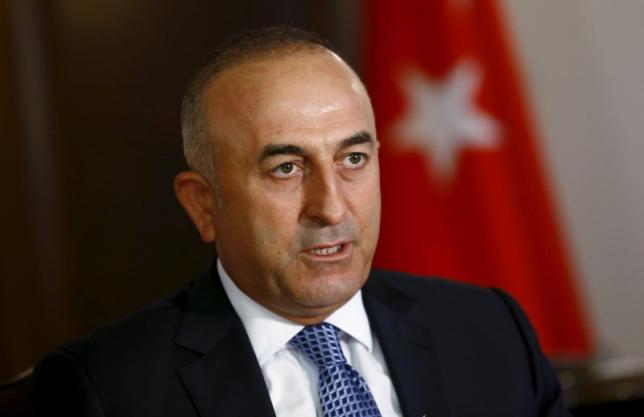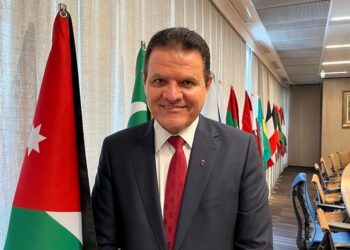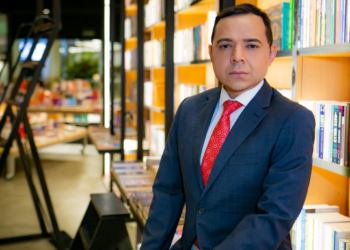By H.E. Mr. Mevlüt Çavuşoğlu,
Foreign Minister of the Republic of Turkey
The fourth edition of the Istanbul Conference on Mediation will take place on 30 June 2017 with the theme of “Surge in Diplomacy, Action in Mediation.” Experts, diplomats, practitioners and scholars from around the world will explore ways and means to promote mediation as a prominent conflict prevention and resolution method.
The profile of mediation has been rising globally since Turkey and Finland led the way at the United Nations through the “Mediation for Peace” initiative. The initiative culminated in the establishment of the Group of Friends of Mediation. The Group now has 53 members, including 48 states and 5 international organizations. There has also been substantial improvement in international capacity for preventive diplomacy and mediation within the UN, regional and sub-regional organizations and civil society. The Group has become the leading platform at the UN to promote mediation. It has initiated the adoption of four UN General Assembly Resolutions, which lay the ground for the development of the normative and conceptual framework of mediation. The Group has also contributed to the 2012 “United Nations Guidance for Effective Mediation”, a fundamental document for those who practice and study mediation worldwide.
UN Secretary General Antonio Guterres has expressed his willingness to further develop UN’s mediation support capacity. His efforts are most commendable. We call on all UN member states to support UNSG Guterres’ broad vision and efforts to prevent and solve today’s conflicts. Turkey has been doing her part. Turkey is situated next to a vast region where acute active and frozen conflicts persist. Prevention and peaceful resolution of conflicts is a central feature of Turkey’s enterprising and humanitarian foreign policy. Turkey undertakes various efforts in a wide geography from Africa to the Middle East, the Balkans and the Caucasus. She sees peacemaking in a humanitarian-development nexus. This year, Turkey has again become the most generous nation in the world in terms of per capita humanitarian assistance.
Turkey has been hosting the Istanbul Conferences on Mediation since 2012. These landmark conferences are designed to bring together numerous practitioners and scholars in the field of conflict prevention and mediation activities. The aim of these conferences is to promote synergies between theory and practice and help increase scope, reach and effectiveness of the international community’s mediation efforts. I must pay tribute to the efforts of mediators engaging daily in conflicts wordwide.
This year the Conference will explore how mediation methodology and practice can take better account of the needs of the day. In this regard, two questions in particular would be scrutinized. One is the potential of mediation in all stages of a conflict continuum, namely from prevention to resolution and all the way to peace agreement implementation. The second key question would be the models for greater employment of mediation as a preventive tool in contexts where political, ethnic, religious biases create an environment of hostility.
The latter is especially pertinent since we have come to sadly witness extreme tendencies in various forms of political, social and religious animosities. The rise in attacks in Europe against Muslims and migrants is a case in point. Prevention is key. However, prevention would be possible only when societies recognize and learn to respect differences and engage in genuine dialogue and interaction. I believe that mediators who are well-equipped with the cultural codes of conduct in a given conflict situation can reach remarkable success. For that, we need to train more mediators including at youth while encouraging more women mediators and equip them with the right tools.
Our challenges to make peace the overwhelming reality on a global level are immense. However, we should be able to see the opportunities within those challenges. The readiness and willingness of the international community to build capacity in peaceful resolution of conflicts including mediation must be a priority. As we prepare to welcome participants of the Fourth Istanbul Mediation Conference, I call on the international community to take action in mediation.
Crescimento na diplomacia, ação na mediação
Por S.E. Sr. Mevlüt Çavuşoğlu,
Ministro dos Negócios Estrangeiros da República da Turquia
A quarta edição da Conferência de Istambul sobre Mediação ocorrerá em 30 de junho de 2017 com o tema “Crescimento na diplomacia, ação na mediação”. Especialistas, diplomatas, profissionais e estudiosos de todo o mundo explorarão formas e meios de promover a mediação como um método proeminente de prevenção e resolução de conflitos.
O perfil da mediação tem aumentado globalmente, uma vez que a Turquia e a Finlândia lideraram o caminho nas Nações Unidas através da iniciativa “Mediação pela Paz”. A iniciativa culminou no estabelecimento do Grupo de Amigos de Mediação. O grupo possui agora 53 membros, incluindo 48 estados e 5 organizações internacionais. Também houve melhora substancial na capacidade internacional de diplomacia preventiva e mediação dentro da ONU, das organizações regionais e sub-regionais e da sociedade civil. O grupo tornou-se plataforma líder para promover a mediação na ONU. Iniciou a adoção de quatro resoluções da Assembléia Geral da ONU, que estabelecem o fundamento para o desenvolvimento do quadro normativo e conceitual de mediação. O grupo também contribuiu em 2012 para “Orientação das Nações Unidas para a mediação efetiva”, um documento fundamental para aqueles que praticam e estudam a mediação em todo o mundo.
O secretário-geral da ONU, Antonio Guterres, expressou sua vontade de desenvolver a capacidade de apoio à mediação da ONU. Os seus esforços são muito louváveis. Pedimos a todos os Estados membros da ONU que apoiem a ampla visão e esforços do Secretário Guterres para prevenir e resolver os conflitos atuais. A Turquia tem feito sua parte. A Turquia está situada perto de uma vasta região onde persistem conflitos agudos ativos e suspensos. A prevenção e resolução pacífica dos conflitos é uma característica central da política externa empreendedora e humanitária da Turquia. A Turquia realiza vários esforços em uma ampla geografia da África ao Oriente Médio, os Balcãs e o Cáucaso. Ela vê pacificação em um nexo de desenvolvimento humanitário. Este ano, a Turquia voltou a se tornar a nação mais generosa do mundo em termos de assistência humanitária per capita.
A Turquia tem sediado as Conferências de Istambul sobre Mediação desde 2012. Essas conferências de referência destinam-se a reunir numerosos profissionais e acadêmicos no campo das atividades de prevenção e mediação de conflitos. O objetivo dessas conferências é promover sinergias entre teoria e prática e ajudar a aumentar a extensão, o alcance e a eficácia dos esforços de mediação da comunidade internacional. Devo prestar homenagem aos esforços dos mediadores envolvidos diariamente em conflitos em todo o mundo.
Este ano, a Conferência irá explorar como a metodologia e a prática da mediação podem responder melhor às necessidades do dia. A este respeito, duas questões em particular seriam examinadas. Um deles é o potencial da mediação em todos os estágios de um conflito contínuo, desde prevenção até resolução e todo o caminho até a implementação do acordo de paz. A segunda questão-chave seria os modelos para um maior emprego da mediação como ferramenta preventiva em contextos em que as tendências políticas, étnicas e religiosas criem um ambiente de hostilidade.
Este último é especialmente pertinente, pois infelizmente, testemunhamos tendências extremas em várias formas de animosidades políticas, sociais e religiosas. O aumento dos ataques na Europa contra os muçulmanos e os migrantes é um exemplo. A prevenção é a chave. No entanto, a prevenção só seria possível quando as sociedades reconhecerem e aprenderem a respeitar as diferenças e se engajarem em diálogo e interação genuínos. Eu acredito que mediadores bem equipados com os códigos de conduta culturais em uma determinada situação de conflito podem alcançar um sucesso notável. Para isso, precisamos treinar mais mediadores, inclusive na juventude, incentivando mais mulheres mediadoras e equipando-as com as ferramentas certas.
Nossos desafios para tornar a paz um realidade em um nível global são imensas. No entanto, devemos poder ver as oportunidades nesses desafios. A prontidão e a vontade da comunidade internacional para se capacitar em resolução pacífica de conflitos, incluindo a mediação, devem ser uma prioridade. À medida que nos preparamos para receber os participantes da Quarta Conferência de Istambul sobre Mediação, apelo à comunidade internacional a agir na mediação.






